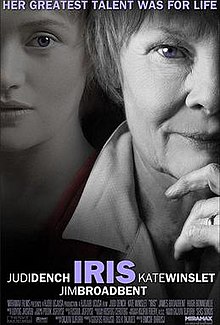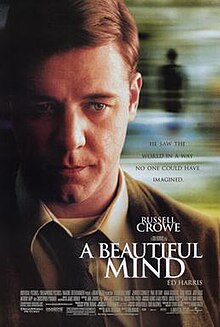Still Alice Discussion Guide: Home
Articles, Interviews, and Reviews
- Interview with Lisa GenovaAlzheimer Research Forum
- Still Alice: ReviewAARP Magazine, January 2009
- Goodreads Reviews: Still AliceGoodreads.com
Also by Lisa Genova
Left Neglected
ISBN: 9781439164631Love Anthony
ISBN: 9781439164686
Recommended DVDs
 IrisAdapted from the memoirs of literary critic John Bayley, the film recounts his courtship of and long marriage to British novelist Iris Murdoch. The scenario tacks back and forth from the young Iris -- ready to seduce one and all with her coy command of words and sex appeal -- to the elder Iris -- slowly giving way to the cruel erasure of Alzheimer's.
IrisAdapted from the memoirs of literary critic John Bayley, the film recounts his courtship of and long marriage to British novelist Iris Murdoch. The scenario tacks back and forth from the young Iris -- ready to seduce one and all with her coy command of words and sex appeal -- to the elder Iris -- slowly giving way to the cruel erasure of Alzheimer's. A Beautiful MindBased on the biography of John Nash, a mathematical genius whose brilliant career was cut short by schizophrenia and who, after three decades of devastating mental illness, miraculously recovered and was honored with a Nobel Prize.
A Beautiful MindBased on the biography of John Nash, a mathematical genius whose brilliant career was cut short by schizophrenia and who, after three decades of devastating mental illness, miraculously recovered and was honored with a Nobel Prize.
Videos about Lisa Genova's Still Alice
Discussion Questions
(From ReadingGroupGuides.com)
1. When Alice becomes disoriented in Harvard Square, a place she's visited daily for twenty-five years, why doesn't she tell John? Is she too afraid to face a possible illness, worried about his possible reaction, or some other reason?
2. After first learning she has Alzheimer's disease, "the sound of her name penetrated her every cell and seemed to scatter her molecules beyond the boundaries of her own skin. She watched herself from the far corner of the room" (pg. 70). What do you think of Alice's reaction to the diagnosis? Why does she disassociate herself to the extent that she feels she's having an out-of-body experience?
3. Do you find irony in the fact that Alice, a Harvard professor and researcher, suffers from a disease that causes her brain to atrophy? Why do you think the author, Lisa Genova, chose this profession? How does her past academic success affect Alice's ability, and her family's, to cope with Alzheimer's?
4. "He refused to watch her take her medication. He could be mid-sentence, mid-conversation, but if she got out her plastic, days-of-the-week pill container, he left the room" (pg. 89). Is John's reaction understandable? What might be the significance of him frequently fiddling with his wedding ring when Alice's health is discussed?
5. When Alice's three children, Anna, Tom and Lydia, find out they can be tested for the genetic mutation that causes Alzheimer's, only Lydia decides she doesn't want to know. Why does she decline? Would you want to know if you had the gene?
6. Why is her mother's butterfly necklace so important to Alice? Is it only because she misses her mother? Does Alice feel a connection to butterflies beyond the necklace?
7. Alice decides she wants to spend her remaining time with her family and her books. Considering her devotion and passion for her work, why doesn't her research make the list of priorities? Does Alice most identify herself as a mother, wife, or scholar?
8. Were you surprised at Alice's plan to overdose on sleeping pills once her disease progressed to an advanced stage? Is this decision in character? Why does she make this difficult choice? If they found out, would her family approve?
9. As the symptoms worsen, Alice begins to feel like she's living in one of Lydia's plays: "(Interior of Doctor's Office. The neurologist left the room. The husband spun his ring. The woman hoped for a cure.)" (pg. 141). Is this thought process a sign of the disease, or does pretending it's not happening to her make it easier for Alice to deal with reality?
10. Do Alice's relationships with her children differ? Why does she read Lydia's diary? And does Lydia decide to attend college only to honor her mother?
11. Alice's mother and sister died when she was only a freshman in college, and yet Alice has to keep reminding herself they're not about to walk through the door. As the symptoms worsen, why does Alice think more about her mother and sister? Is it because her older memories are more accessible, is she thinking of happier times, or is she worried about her own mortality?
12. Alice and the members of her support group, Mary, Cathy, and Dan, all discuss how their reputations suffered prior to their diagnoses because people thought they were being difficult or possibly had substance abuse problems. Is preserving their legacies one of the biggest obstacles to people suffering from Alzheimer's disease? What examples are there of people still respecting Alice's wishes, and at what times is she ignored?
13. "One last sabbatical year together. She wouldn't trade that in for anything. Apparently, he would" (pg. 223). Why does John decide to keep working? Is it fair for him to seek the job in New York considering Alice probably won't know her whereabouts by the time they move? Is he correct when he tells the children she would not want him to sacrifice his work?
14. Why does Lisa Genova choose to end the novel with John reading that Amylix, the medicine that Alice was taking, failed to stabilize Alzheimer's patients? Why does this news cause John to cry?
15. Alice's doctor tells her, "You may not be the most reliable source of what's been going on" (pg. 54). Yet, Lisa Genova chose to tell the story from Alice's point of view. As Alice's disease worsens, her perceptions indeed get less reliable. Why would the author choose to stay in Alice's perspective? What do we gain, and what do we lose?
Reserve a copy
Still Alice by
ISBN: 9781439116883
Recommended Reading
Turn of Mind by
ISBN: 9780802119773A startling portrait of a disintegrating mind clinging to bits of reality through anger, frustration, shame, and unspeakable loss.
If you liked Still Alice, you might enjoy the following books.
Jan's Story by
ISBN: 9781933016443When CBS News Correspondent Barry Petersen married the love of his life twenty-five years ago, he never thought his vow,"until death do us part," would have an expiration date. But Early Onset Alzheimer's claimed Jan Petersen, Barry's beautiful wife, at 55, leaving her unable to remember Barry or their life together.A Beautiful Mind by
ISBN: 9780684819068In this biography, Sylvia Nasar re-creates the life of a mathematical genius whose brilliant career was cut short by schizophrenia and who, after three decades of devastating mental illness, miraculously recovered and was honored with a Nobel Prize.Ordinary People by
ISBN: 9780140065176The Jarrets are a typical American family. Calvin is a determined, successful provider and Beth an organized, efficient wife. They had two sons, Conrad and Buck, but now they have one. In this memorable, moving novel, Judith Guest takes the reader into their lives to share their misunderstandings, pain...and ultimate healing.The Madonnas of Leningrad by
ISBN: 9780060825300Bit by bit, the ravages of age are eroding Marina's grip on the everyday. And while the elderly Russian woman cannot hold on to fresh memories - the details of her grown children's lives, the approaching wedding of her grandchild - her distant past is preserved: vivid images that rise unbidden of her youth in war-torn Leningrad.

